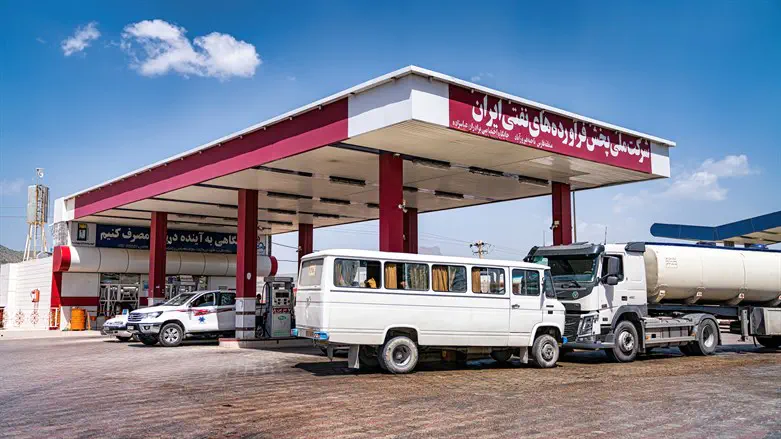
Iran is facing a major energy crisis caused both by decades of mismanagement and Israeli attacks on the country's energy infrastructure, according to a report by the New York Times on Saturday.
“We are facing very dire imbalances in gas, electricity, energy, water, money and environment,” Iranian President Masoud Pezeshkian said in a televised address earlier this month. “All of them are at a level that could turn into a crisis.”
“We must apologize to the people that we are in a situation where they have to bear the brunt,” he added. “God willing, next year we will try for this not to happen.”
According to the report, the energy crisis is so acute that government offices are either closed or forced to reduce the hours during which they are open. In addition, many schools cannot open, malls cannot keep their lights on, and factories cannot operate.
The situation has led to numerous blackouts and has grown even more acute as citizens attempt to keep warm during the cold winter months, stretching Iran's already taxed energy infrastructure to its limit. The government was forced to chose between cutting power to power plants or cutting supplies of gas necessary for people to heat their homes. It chose to do the former, taking 17 power plants offline as of last week.
While the report cites mismanagement, lack of investment, and the effects of years of Western sanctions on Iran as causes of the current crisis, it also claims that the crisis was exacerbated by alleged Israeli airstrikes on Iranian gas pipelines in February 2024.
The airstrikes forced Iran to tap into its emergency gas reserves, which only served as a temporary solution. As the months passed, the problem only worsened, and by November, the government was instituting daily two-hour blackouts to save energy. These blackouts have since lengthened and schools have been forced to move classes online.
Iran's energy crisis comes as its foreign policy has collapsed with the devastation of its terrorist proxies Hamas and Hezbollah and the fall of the regime of its ally Bashar al-Assad in Syria. The Islamic Republic is expected to face stricter sanctions enforcement from the incoming Trump Administration than it has from the outgoing Biden Administration, further straining its limited resources.
